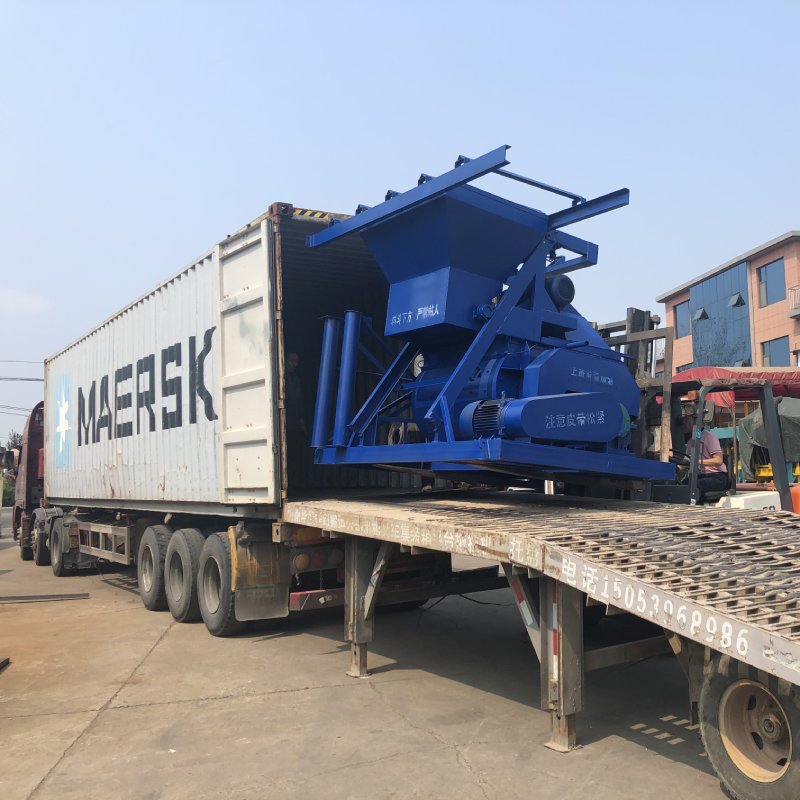
The construction industry has long been a critical driver of economic growth and infrastructure development.
However, it’s also an industry known for its challenges, including high costs, labor-intensive processes, and environmental concerns.
In recent years, technological advancements have begun to reshape the construction landscape, and one of the most transformative innovations is the next-generation block making machine.
This essay delves into the revolutionary impact of these machines on the construction sector, highlighting their potential to accelerate building processes, enhance efficiency, and contribute to sustainable development.
The Evolution of Construction Technology
Construction technology has evolved significantly over the years, with each era witnessing its own set of innovations that aimed to streamline the building process.
From the advent of mechanized equipment to the integration of computer-aided design and prefabrication techniques, the industry has embraced various advancements.
The next-gen block making machine emerges as a continuation of this trend, promising to be a game-changer in construction practices.
Understanding Next-Gen Block Making Machines
The next-generation block making machine represents a convergence of engineering, automation, and sustainable practices.
Unlike traditional construction methods that often rely on manual labor and time-consuming processes, these machines automate the production of building blocks, such as bricks and concrete blocks, with remarkable precision and efficiency.
Equipped with innovative features like modular molds, hydraulic systems, and advanced control interfaces, these machines offer a range of benefits that address some of the longstanding challenges in the construction sector.
Accelerating Building Processes
One of the standout advantages of next-gen block making machines is their ability to significantly accelerate building processes.
Traditional bricklaying or block-making processes can be laborious and time-intensive, often leading to project delays and increased costs. With these machines, what used to take days or even weeks to accomplish manually can now be achieved in a matter of hours.
This acceleration not only reduces project timelines but also allows for quicker occupancy and utilization of structures, benefiting both builders and end-users.
Enhancing Efficiency and Precision
Efficiency and precision are at the core of the next-gen block making machine’s value proposition.
These machines are engineered to produce uniform and high-quality blocks consistently.
The modular mold systems ensure that each block is manufactured to exact specifications, eliminating variations that can compromise the structural integrity of buildings.
Moreover, the automated hydraulic systems ensure that the right amount of pressure is applied during the block production process, leading to superior strength and durability.
By minimizing human error and ensuring consistency, these machines contribute to improved building quality and reduced maintenance needs.
This enhancement in efficiency not only saves resources but also instills confidence in the longevity of constructed structures.
Sustainable Construction Practices
In an era where environmental sustainability is a global imperative, the construction industry is under pressure to adopt greener practices. Next-gen block making machines play a pivotal role in this transition.
They often utilize eco-friendly materials such as recycled aggregates, fly ash, and other supplementary cementitious materials.
Additionally, the reduced energy consumption and waste generation associated with automated block production contribute to a lower carbon footprint.
Furthermore, these machines support the concept of modular construction, which reduces construction waste and promotes reusability. Structures built with blocks produced by these machines can be easily disassembled and repurposed, fostering a circular economy within the construction sector.
The next-gen block making machine marks a significant step forward in the construction industry’s ongoing technological evolution.
By streamlining processes, enhancing efficiency and precision, and promoting sustainable construction practices, these machines hold the potential to revolutionize the way we build our world.
As they continue to gain traction and become more accessible, it’s clear that their impact will be far-reaching.
From reducing project timelines to contributing to a greener planet, the next-gen block making machine is undoubtedly a beacon of innovation in the construction sector.
As we move forward, embracing these technological advancements will not only shape skylines but also contribute to a more efficient, sustainable, and resilient built environment.
